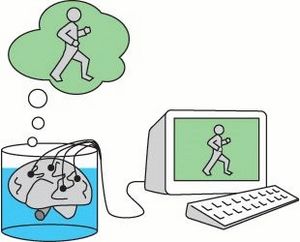Reality facts for kids
Reality is everything that truly exists. It's about things that are real and have actually happened. When something is very close to how things really are, we call it realistic.
Reality is how things actually are, not how they might seem or how we imagine them. It includes everything that is, has been, or will be, even if we can't see or understand it right now.
We often compare reality to things that are imaginary, like dreams or made-up stories. If something is true, it's real. If it's false, it's not real.
However, some ideas that are abstract, like justice or virtue, are also part of our reality. They might be hard to define, but they are not just made-up.
You might have heard of "Reality TV" shows. These are TV programs that are not scripted, meaning the people in them are not acting out a story.
Different Ways to Think About Reality
People have different ways of understanding what reality is.
Reality in Philosophy
Philosophy is a way of thinking deeply about big questions. When it comes to reality, philosophers explore what reality truly is. They also look at how our mind, our language, and our culture affect what we think is real.
Reality in Science
Science helps us understand the world around us. Scientists believe that the world described by science is the real world. Their understanding of reality comes from evidence, careful tests, and experiments. What ends up in science textbooks is usually what many scientists have agreed upon after lots of research.
See also
In Spanish: Realidad para niños


